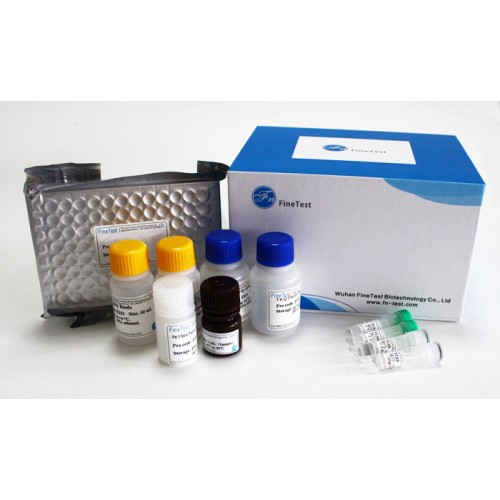Product Description
Recombinant Human Peroxiredoxin-2 (PRDX2) is available at Gentaur for Next week Delivery.
Gene Name: PRDX2
Alternative Names : Natural killer cell-enhancing factor B
Expression Region : 2-198aa
AA Sequence : ASGNARIGKPAPDFKATAVVDGAFKEVKLSDYKGKYVVLFFYPLDFTFVCPTEIIAFSNRAEDFRKLGCEVLGVSVDSQFTHLAWINTPRKEGGLGPLNIPLLADVTRRLSEDYGVLKTDEGIAYRGLFIIDGKGVLRQITVNDLPVGRSVDEALRLVQAFQYTDEHGEVCPAGWKPGSDTIKPNVDDSKEYFSKHN
Sequence Info : Full Length of Mature Protein
Tag Info : N-terminal 10xHis-tagged
Theoretical MW : 24.3 kDa
Storage Buffer : Tris/PBS-based buffer, 5%-50% glycerol. If the delivery form is lyophilized powder, the buffer before lyophilization is Tris/PBS-based buffer, 6% Trehalose, pH 8.0.
Endotoxin Level : Not tested-
Biological Activity : Not tested
Storage : Short term: -20°C; Long term: -80°C. Minimize freeze and thaw cycles.
Research Area : Neuroscience
Restriction : For Research Use Only. Not for use in diagnostic procedures, drug use, or for administration to humans or animals.
Relevance : Involved in redox regulation of the cell. Reduces peroxides with reducing equivalents provided through the thioredoxin system. It is not able to receive electrons from glutaredoxin. May play an important role in eliminating peroxides generated during metabolism. Might participate in the signaling cascades of growth factors and tumor necrosis factor-alpha by regulating the intracellular concentrations of H2O2.
Function : Thiol-specific peroxidase that catalyzes the reduction of hydrogen peroxide and organic hydroperoxides to water and alcohols, respectively. Plays a role in cell protection against oxidative stress by detoxifying peroxides and as sensor of hydrogen peroxide-mediated signaling events. Might participate in the signaling cascades of growth factors and tumor necrosis factor-alpha by regulating the intracellular concentrations of H(2)O(2).
Involvement in disease :
Subcellular location : Cytoplasm
Protein Families : Peroxiredoxin family, AhpC/Prx1 subfamily
Tissue Specificity :
Paythway : Cellageingandmetabolism
Uniprot ID : P32119
 Euro
Euro
 British Pound
British Pound
 US Dollar
US Dollar








